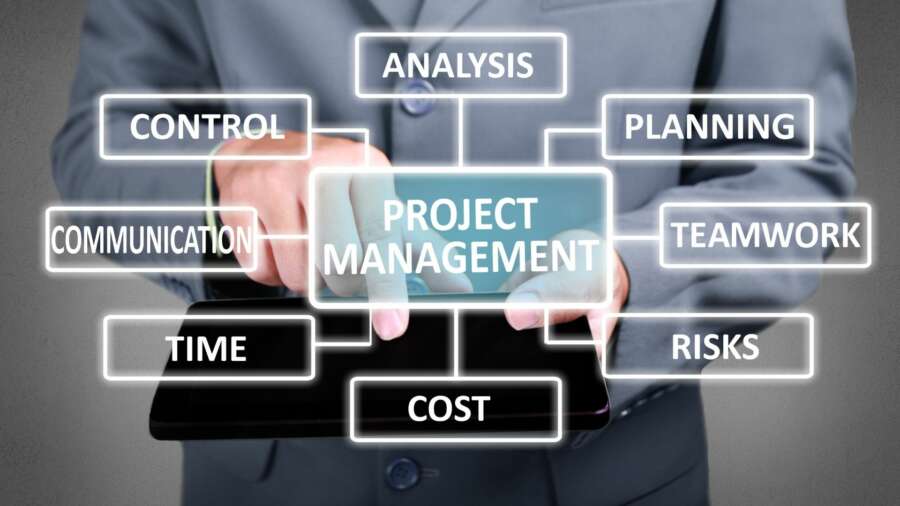What is project management? It is not just the job of a manager to set objectives, work through the various requirements and deliverables and keep the team working as efficiently as possible. It involves several phases. They are:
Project planning: This stage deals with laying down the overall plan of the project in terms of scope, time, budget, milestones, risks and benefits. It also helps the project manager to decide on the kind of resource the team will require. Once this has been done, the next step is to create a realistic and manageable schedule of work that will help them complete the project within the assigned time. As the deadline for delivery is approaching, the manager makes sure that everything has been completed within the timeframe and in the right order. As part of project planning, the manager makes sure that the team members work together as well as communicate effectively.
The team work: Once the project has been planned and assigned work, it needs to be managed to ensure a smooth process from start to finish. The team needs to cooperate, follow the instructions, perform tasks in an orderly manner and accept help when necessary. In addition, the team needs to manage themselves in order to prevent conflicts of interest.
The execution of the plan: The project completion is a well-managed process. Once it has been completed, the manager reviews it carefully to find any areas that may need improvement and then decides on any changes that will be made before implementing them.
The monitoring of progress: If the plan has been followed correctly, the project manager will monitor progress and report them periodically so that the project can continue without interruptions. He or she will also be able to see whether there are any changes that need to be made before implementing them. With the help of this feedback, the manager will know whether the work is being done effectively and if there are any problems.
The supervision of management: During the planning phase, the manager should monitor the progress and ensure that management’s guidelines and instructions are being followed. If there is anything that does not seem to be working according to plan, the manager will make changes in order to address the issues.
When you are working on a project management, it is essential that you do your own assessment. It is a way to help you identify the weaknesses in the team’s performance. In addition, this will allow you to improve your methods so that you can improve your project’s success.
It may take a while to finish a project but with proper management, the results are worth the effort. When you have completed your project, you will be pleased and proud to know that the whole team was responsible for the success. And you are able to rest assured that you have taken the first steps to getting the best out of your team.
The most important part of managing a project is the people involved. Your team members need to work together to achieve a common goal. When you have an efficient team, they will be able to share their ideas and experiences. They will also be able to share information about the current status of their projects with each other.
One of the best methods you can use in order to ensure that your project is completed successfully is to reward your team members when they are successful and to reward your project manager when it is not. When the project is completed, the entire team and its members are happy with their work and it makes them satisfied.
It takes time to find the right team and staff for a project. It is up to the project manager to choose which ones you wish to work with. The team members and team manager should have an excellent communication with each other to ensure that everyone is working in harmony. They should also work together to keep the project plans as well organized and correct.
In addition to these three factors, a project manager should also be able to implement and oversee a program of activities for the project. This helps the project succeed and prevents it from becoming overwhelmed.
